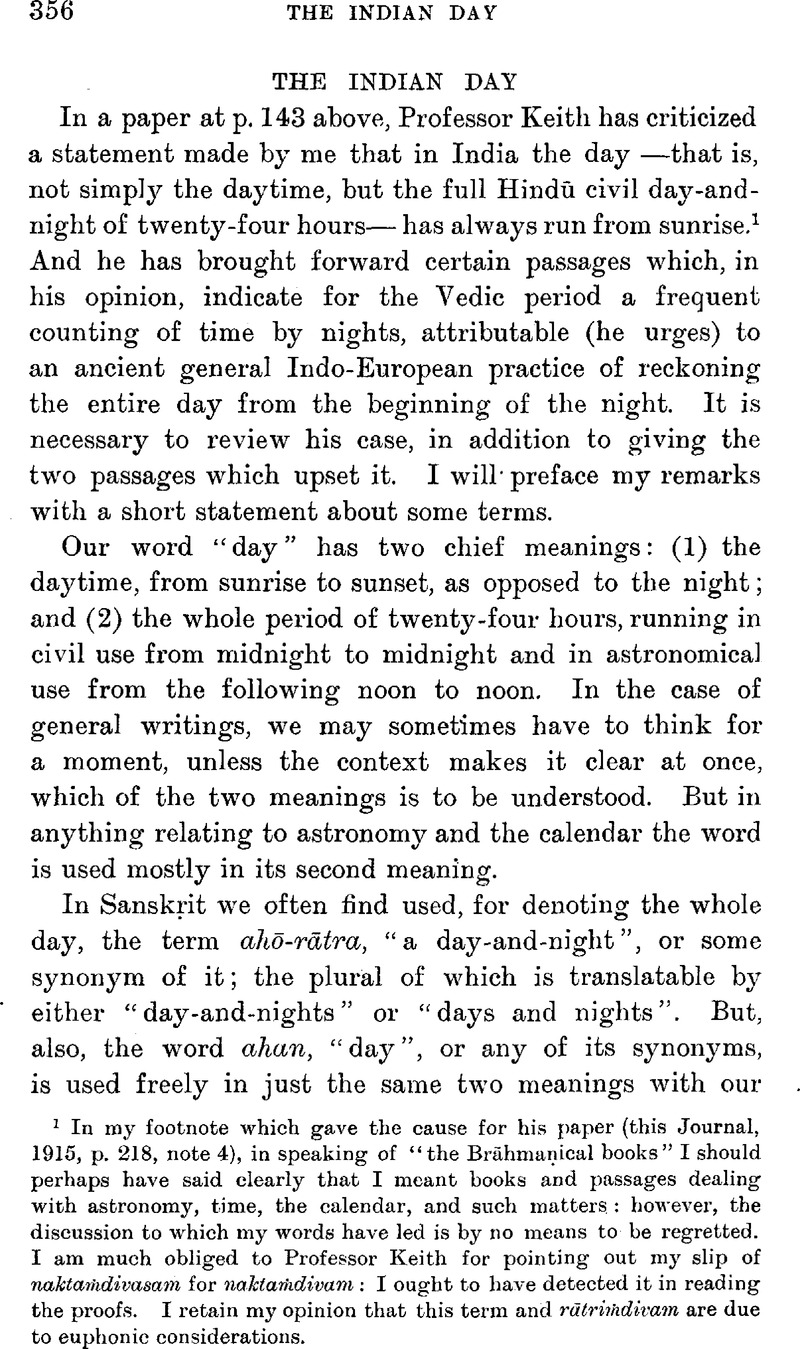No CrossRef data available.

page 356 note 1 In my footnote which gave the cause for his paper (this Journal, 1915, p. 218, note 4), in speaking of “the Brāhmaṇical books” I should perhaps have said clearly that I meant books and passages dealing with astronomy, time, the calendar, and such matters: however, the discussion to which my words have led is by no means to be regretted. I am much obliged to Professor Keith for pointing out my slip of naktaṁdivasam for naktaṁdivam: I ought to have detected it in reading the proofs. I retain my opinion that this term and rātriṁdivam are due to euphonic considerations.
page 357 note 1 I regard the instances in the Divyāvadāna of the expression “night-and-day”, which I quoted, as quite incidental ones, due to the writer liking to vary his style and words here and there.
page 358 note 1 That is, of course, according to the amānta month, the month ending with the new-moon, which is the only one that is recognized in the Hindū astronomy and in passages, such as the present one, dealing with the details of time.
page 358 note 2 See Macdonell, 's Vedic Mythology, p. 49 ff.Google Scholar; especially p. 50, bottom.
page 359 note 1 Sacred Books of the East, vol. 41, p. 353.Google Scholar
page 359 note 2 SBE, 43. 349.
page 360 note 1 SBE, 44. 168: compare 11. 1. 2. 10, 11, ibid., p. 5.
page 360 note 2 SBE, 41. 184: so also in 10. 2. 6. 1., SBE, 43. 322.
page 360 note 3 SBE, 43. 351.
page 361 note 1 SBE, 44. 14. I venture to think that both here and in para. 7 divā might have been rendered by ‘light’ or ‘brightness’ better than by “daylight”.
page 361 note 2 I am indebted to Dr. Barnett for this reference.
page 361 note 3 For Dawn and Night as sisters, daughters of Heaven (div), see, e.g., RV, 5. 41. 7; 10. 70. 6. The Vedic poets do not seem to have personified the daytime exactly as they did the night: but, while their Dawn sometimes means absolutely the dawn, in such passages as this one it clearly stands for the daytime. It may be noted that though the expression nakt-ōshāsā, “Night and Dawn”, is found sometimes, the more usual one is ushāsā-naktā, “Dawn and Night”, as in the two passages mentioned just above; see Macdonell, , Vedic Mythology, p. 126.Google Scholar